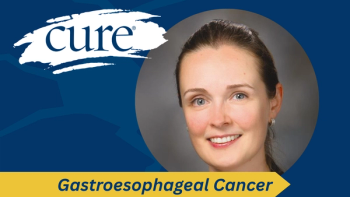
Specialized Care Is Needed for Adolescent and Young Adult Cancer Survivors
The survey contained questions on a range of issues they may have experienced, including pain, fatigue, as well as issues with sexual function, body image and finances. Researchers then looked at the anxiety and depression associated with those issues, and talked with patients about what they thought might be causing those problems.
While survivorship is an important part of the cancer journey for all patients, the adolescent and young adult (AYA) population requires special care, according to a recent study presented at the American Society of Clinical Oncology’s Annual Meeting on June 1-5.
“The young adult population is living longer, and we’re only now learning about what they are ultimately going to have to deal with,” said Linda Jacobs, Ph.D., Director of the Cancer Survivorship Program at the Abramson Cancer Center of the University of Pennsylvania and lead author of the study.
Through a collaborative program with the Children’s Hospital of Philadelphia, Jacobs and other researchers from the Abramson Cancer Center analyzed more than 10 years of follow-up visit data collected from 170 survivors — 123 pediatric and 47 AYA – to find similarities and determine what unmet needs exist.
The research team had participants complete a survey on each follow-up visit to the adult survivorship clinic. The survey contained questions on a range of issues they may have experienced, including pain, fatigue, as well as issues with sexual function, body image and finances. Researchers then looked at the anxiety and depression associated with those issues, and talked with patients about what they thought might be causing those problems.
In an interview with CURE, Jacobs explained, “This population has had a rough go. Some were diagnosed with cancer maybe 20 years ago, and the treatment was different back then. Consequently, in many cases, their symptoms are worse now than someone who has that disease and was diagnosed with it recently because treatments are different.”
Researchers found that the anxiety and depression this population experienced was a result of the symptoms of treatment (for example, concentration and memory problems or fatigue as a result of chemotherapy or radiation).
“It’s not that they just have anxiety or depression as a result of having had cancer; it’s very closely related to the symptoms that they have,” said Jacobs. “If you’re in pain, of course you’re going to be anxious. Or if you are having trouble with work and can’t hold down a job, you might be depressed.”
Jacobs went on to explain that the focus then should not be on the anxiety and depression, but on how to manage the symptoms that cause them. This is especially key for adult survivors of childhood cancer, as the researchers found that these patients were more likely to accept intervention for symptoms that correlate with anxiety and depressions — such as pain, sleep issues, job and financial issues – than they were for anxiety or depression alone.
To address these issues, Jacobs notes, the responsibility isn’t solely on the patient. Oncologists should be aware these issues exist particularly in this population. But rather than simply seeing a general practitioner, patients also need to continue follow up care with their oncologist, who will be more familiar with the late effects of cancer than their primary care physicians might be.
This is especially true for some survivors who may go on to develop a second cancer as a result of treatments they received as a pediatric or young adult patient. Jacobs recalls one individual in particular:
“We just had a young man come in nearly 30 years later with a very serious cancer as a result of the radiation he received, and he wasn’t seeing an oncologist; he was seeing a primary care doctor who wasn’t necessarily familiar with what the late effects could possibly be.”
Jacobs did note that a follow-up or survivorship clinic would be a more suitable venue for this care than in an oncology practice, where the focus is put on a cure, not on post-treatment issues.
For example, in her own survivorship clinic, she explained that patients have access to a number of resources including physical and occupational therapy, counseling, and a large network of other doctors to address other symptoms, such as orthopedic and endocrine specialists.
The biggest concern, Jacobs said, was having educated providers who are familiar with — and capable of – taking care of this unique patient population. But the landscape is changing for the better.
“Providers are becoming more well-versed in these issues as more studies come out and this becomes more mainstream. In the past, people didn’t necessarily talk about issues like these. But now, patient advocacy groups and providers who give follow-up care are very upfront about what patients want and need.”




